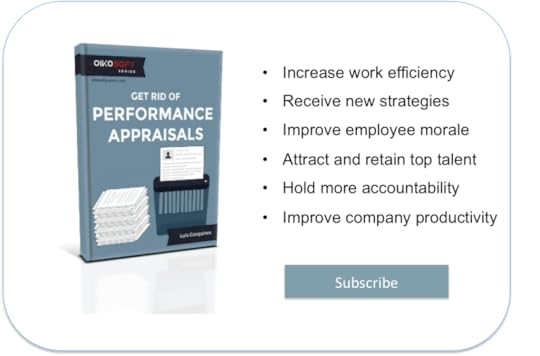Luis Gonçalves's Blog, page 14
May 25, 2014
Monetary Rewards destroy relationships between people
In today’s world modern companies try to create environments where cooperation is a must between employees and departments. Alfie Kohn, in his book Punished by Rewards, goes further and states: “Cooperation does not just make tasks more pleasant; in many cases, it is virtually a prerequisite for quality”.
Companies start to realize that having well-functioning teams, in which knowledge, resources and skills are shared and exchanged is a safe recipe for excellence. Even if companies realize that a team work is the solution, they still have a process in place that reinforce individual work over team work. Focusing on individual rewards will give the impression that organization´s effectiveness is simply the sum of individual performance, whereas there is plenty of books, which already proved that a team is much more than the sum of individuals.
Having people fighting for their individual rewards will create an environment where collaboration will not be present.
After all, who will stop helping others when this would put my ability to get my reward in risk.
Alfie Khon tells us that this rivalry is even worse when people fight for a reward that not everyone can get. Imagine a price that is given only to the best person in a team or in a department. In this situation, you will have a bunch of people fighting with each other to get the price. Each person will perceive the other with suspicion and hostility. This is explained in details in the book No Contest from Alfie Kohn.
At this point, you might think this issue is easily solved substituting individual rewards for team rewards, however this is not that simple. Paul C. Jordan shows in his article: “Effects of an Extrinsic Reward on Intrinsic Motivation: A Field Experiment”, that shifting individual rewards to team rewards only shifts the problem to a different level within the organization. Instead of individual competition, we will have teams competition.
Another problem with moving to a collective award approach is the fact that this can be used as a manipulative strategy to control a full team. In this situation, there will be a huge peer pressure instead of an environment, in which everyone is concerned about the well-being of others. This can be studied in details in the paper of Peter Balsam and Andrew S. Bondy “The negative Side Effects of Rewards“.
So far, I only discussed relationships between peers. But there is another dimension, relationship between the person who gives the reward and the one who gets it. Bruce Posner in his article Pay for Profits refers that “the principal basis for compensation is the boss whim, the only real incentive is to stay on his good side”.
The relationship between manager/boss/mentor should be something that would allow the mentoree to grow. As already explained, when rewards and incentives are present, the relationship shifts to something else. We all were in a situation, in which we did not get the bonus that we expected and I guess we all still remember how the relationship got broken after that. I finish this blog post with a quote from Alfie Kohn´s book Punished by rewards.
This blog post is part of my new book that you can find here. If you are interested in being a beta reader and provide me valuable feedback, please subscribe the newsletter below. I will keep you updated with the latest status and the first drafts of new chapters.
The post Monetary Rewards destroy relationships between people appeared first on Welcome to.
May 12, 2014
Employee reward discourage risk-taking
 Thousands of companies all over the world use employee reward programs, thinking that they will motivate their employees to achieve higher productivity. Unfortunately, the effect is quite the opposite… employee reward programs tend to destroy the quality of employee performance. I want to explain this to you in my blog post.
Thousands of companies all over the world use employee reward programs, thinking that they will motivate their employees to achieve higher productivity. Unfortunately, the effect is quite the opposite… employee reward programs tend to destroy the quality of employee performance. I want to explain this to you in my blog post.
“It is better not to make merit a matter of reward less people conspire and contend.” Lao-Tzu
In his book, “Behaviorism, Science, and Human Nature”, Barry Schwartz defends that rewards change the way employees engage in a given behavior. Usually, our focus is narrower when no rewards are present.
Employee reward programs give people the incentive to do just what is necessary in order to get the job done and nothing else. When people are working for rewards, they tend to take fewer risks than if rewards were not present. They usually don’t play around with different possibilities or follow any hunches that might not give them anything back. They stop becoming risk-takers because the objective shifts from doing the job to getting the reward. This is justified by Pittman et al. (1982, p. 790).
This attitude is a huge problem for creating educational environments. People learn from experimentation, so when companies have employee reward programs, they create environments where learning and innovation generally disappear.
People that work for rewards don’t want to get negative results; they want to be successful as fast as possible. In his book, Schwartz states that, “Once one finds some response pattern that works reliably [to secure a reward], it is pointless, even foolish, to deviate from it.”
John Condry actually says that rewards are the enemies of exploration. You can find more information in his article here.
When we have employee rewards, our goal is not necessarily to succeed at the task… we don’t care if we do it well or not. Instead, our objective is to get the reward. If we could get the reward without even needing to perform the task at hand, we would do it. This was proven by Kenneth O. McGraw and Jirina Fiala in their article “Undermining the Zeigarnik Effect: Another Hidden Cost of Reward”.
For the conclusion, I am going to quote Alfie Kohn from his book “Punished by Rewards”:
“‘Do this and you’ll get that’ makes people focus on the ‘that,’ not the ‘this.’ Prompting employees to think about how much will be in their pay envelopes, or students to worry about what will be on their report cards, is about the last strategy we ought to use if we care about creativity. We can summarize this discussion as follows: Do rewards motivate people? Absolutely. They motivate people to get rewards.”
This blog post is part of my new book that you can find here. If you are interested in being a beta reader and provide me valuable feedback, please subscribe the newsletter below. I will keep you updated with the latest status and the first drafts of new chapters.
The post Employee reward discourage risk-taking appeared first on Welcome to.
April 29, 2014
Providing Feedback – Awesome excuse to impose Performance Appraisals
Hi guys, some of you that follows my work knows that I love to write about Performance Appraisals. Specially now at this time of the year where everyone in companies are talking about Performance Appraisals. Every time I talk with someone about abolishing performance appraisals from the face of earth, the “feedback excuse” is always on the top of the list, this meaning that Performance Appraisals cannot disappear because without them most of employees would not know how they are performing.
Well let me tell you something, it is not uncommon to employees to receive feedback from their bosses that does not match at all with the feedback that is provided by the people with whom employees work on a daily basis, if this would not be so sad I could actually laugh a bit with this. Now you are thinking that I am saying that we do not need to receive feedback :). No, I am saying that we need feedback but we should not wait for Performance Appraisals to receive this feedback.
“In any well-functioning organization, anyone ought to feel free to give anyone else feedback.” Peter Quarry
Tom Coens and Mary Jenkins on their book: “Abolishing Performance Appraisals”, make this statement: “The people of your organization will effectively use feedback when they recognize, understand, and genuinely value the importance of good communication and information sharing.” to achieve this there there are four topics that need to be implemented.
Create a Clear Vision of the Culture Your Organization Desires
Through awareness and education, foster a shared vision in which people see the importance of good communication and commit to sharing information. Help them understand that communication and feedback must become an integral part of the day-to-day work for everyone in the organization. This means adopting a common belief that it is everyone’s responsibility to continually share and seek out helpful information. Help people see that they will be truly empowered when each one of them, not the supervisor or organization, is responsible to seek the feedback each requires.
Enlighten, Educate, and Train People About Useful Feedback
Part of the task is to help people understand what feedback is, how communication really works, when feedback is most useful, and the value it brings. A key component is helping people understand that the receiver of feedback has at least as much responsibility, and probably more, than the giver of feedback. This requires education that expands people’s thinking about feedback, for example, teaching people ways to get and use feedback on processes and systems or how to get feedback from internal and external customers. The organization also must help people develop the basic skills around giving and receiving feedback.
Provide Structures That Encourage and Support Individual Feedback
Ideally, your organization should offer an array of feedback formats, tools, and processes, and offer related training to givers and receivers alike. For example, you could provide a list of prepared questions on forms and templates that are helpful in particular occupational areas. You can offer software that enables people to easily gather, track, and display feedback from work processes and systems. You also may wish to design an elective 360-degree feedback system as a developmental tool, offering employees the training and administrative resources to help them.
Raise Awareness and Use Non-Feedback Communication Tools
The practice of dialogue has justifiably garnered great attention in the business press, and, if it is properly conducted, yields powerful results. A tool called open space, most popularly crafted by Harrison Owen, has demonstrated incredible power to energize a small or gigantic group of people to commit to multiple improvement initiatives. Another tool, proven over four decades, is future search, which, in two or two and one-half days, a group of diverse stakeholders reflect on critical trends and devise guideposts for organizational strategic improvement.
As you can see from this article abolishing appraisals does not mean abolishing feedback. There are several things that you can and should do in order to create an environment that cultivates constant feedback every where.
“Ultimately, managers aren’t responsible for their people’s performance. People are responsible for their own performance. There’s feedback all around you—if you pay attention. If you’re not getting enough feedback, ask for it.” Anne Saunier
This blog post is part of my new book that you can find here. If you are interested in being a beta reader and provide me valuable feedback, please subscribe the newsletter below. I will keep you updated with the latest status and the first drafts of new chapters.
The post Providing Feedback – Awesome excuse to impose Performance Appraisals appeared first on Welcome to.




